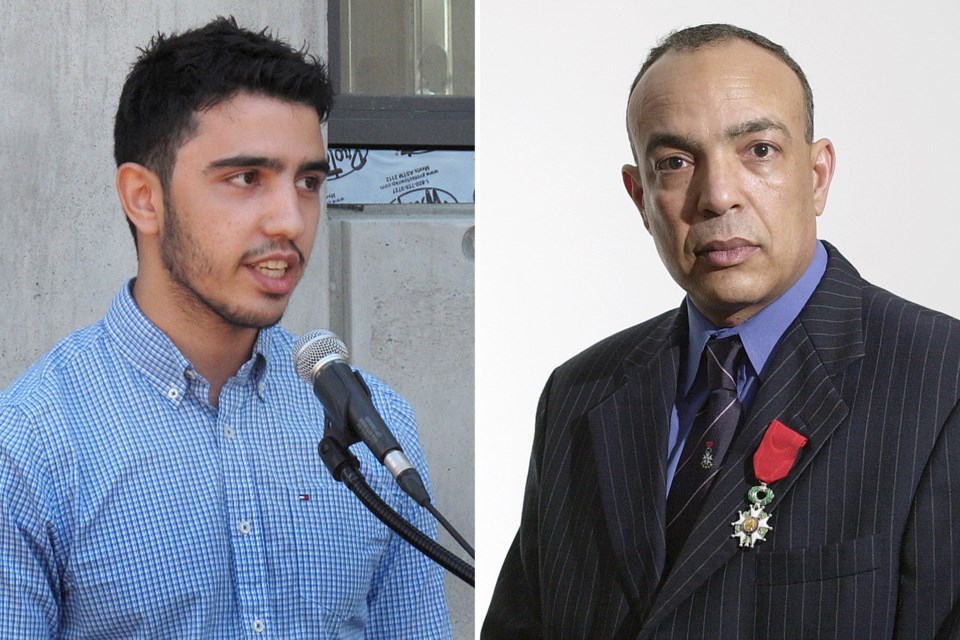As Vancouver and cities across Canada prepare to accommodate 25,000 Syrian refugees before year’s end, Majd Agha is acutely aware that not all Canadians will welcome the newcomers.
That reality, he said, was sharpened over the weekend as critics worried terrorists like those who killed 129 people in Paris last Friday will be among the refugees.
“Whatever happens in Europe or anywhere else, the refugees are going to get blamed,” said Agha, a 22-year-old refugee from Syria who now lives in Vancouver and works for a bankruptcy company. “These refugees don’t deserve this. They escaped [Syria] because of those people who are doing horrific things in their own country.”
The criticism has come in letters to newspapers, complaints on radio call-in shows and via an online petition titled “Stop resettling 25,000 Syrian refugees in Canada,” which claims more than 34,000 supporters.
Agha, who arrived in Vancouver in 2014 as a government-assisted refugee, said he understands Canadians’ fears but is confident Canada has a security system in place to identify legitimate refugees.
Still, he said, he’s afraid, too, of the violence caused by ISIL, whose de facto capital is the city of Raqqa in Syria. With ISIL having made threats to Canada and other democracies around the world, Agha said his family in Syria is more worried for his safety than their own.
“My mom was freaking out, saying ‘Oh my god, they’re following you everywhere,’” he said, referring to a recent conversation he had with his family. “My dad was very, very, very sad about what happened in Paris. He has a lot of friends there and was calling to make sure everyone was fine. It’s absolutely heartbreaking what happened in Paris.”
Paris is a city Mohamed Chelali knows well. Standing in a crowd along the fabled Champs Elysees in July 2002 to watch the annual Bastille Day parade, Chelali foiled an assassination attempt on then-French President Jacques Chirac.
Chelali, a Muslim of Algerian descent who became a Canadian citizen in 1995, was living in White Rock at the time and on vacation with his family. The French immersion teacher was the subject of a Courier cover story in 2004 in which he discussed his heroic actions that day, which involved him and two other men tackling a neo-Nazi armed with a rifle. He received France’s highest honour for bravery.
Chelali is now on sabbatical in southern France and was having dinner with a friend when he learned of the attacks in Paris.
“My reaction was of shock and disbelief that Muslim radicals struck once again and, this time, indiscriminately to peaceful, young French enjoying a nice afternoon in a café, watching a soccer game or live music concert,” said Chelali in an email exchange with the Courier.
Like Agha, his message to Canadians worried about terrorists being among the 25,000 Syrian refugees is the same: Let officials do the security checks and identify legitimate refugees.
“Canada needs and should help Syrian refugees, first because of the role that Canada has always played on the international stage for peace and freedom and, second, because of its history in helping to protect desperate and vulnerable people escaping persecution,” said Chelali, who has citizenship in France.
At the time of Chelali’s act of bravery, France was grappling with how to handle a swell of Muslim immigration and the accompanying social tensions.
Since then, he said, more North African people are in politics, government, parliament and public services. Racism – which he experienced in the 1980s while looking for work in France – still persists.
But, he said, Muslims “are treated with dignity from French authorities, where the government carefully distinguishes between radical Islamist terrorists and the average, simple, peaceful Muslim.”
Agha, meanwhile, said Canadians upset about the attacks in Paris should also remember that more than 40 people were killed in ISIL suicide bomber attacks the previous day in Lebanon.
“I didn’t see any Lebanese flags flying in Vancouver after that,” he said. “Humans are humans, no matter where they live.”
@Howellings



